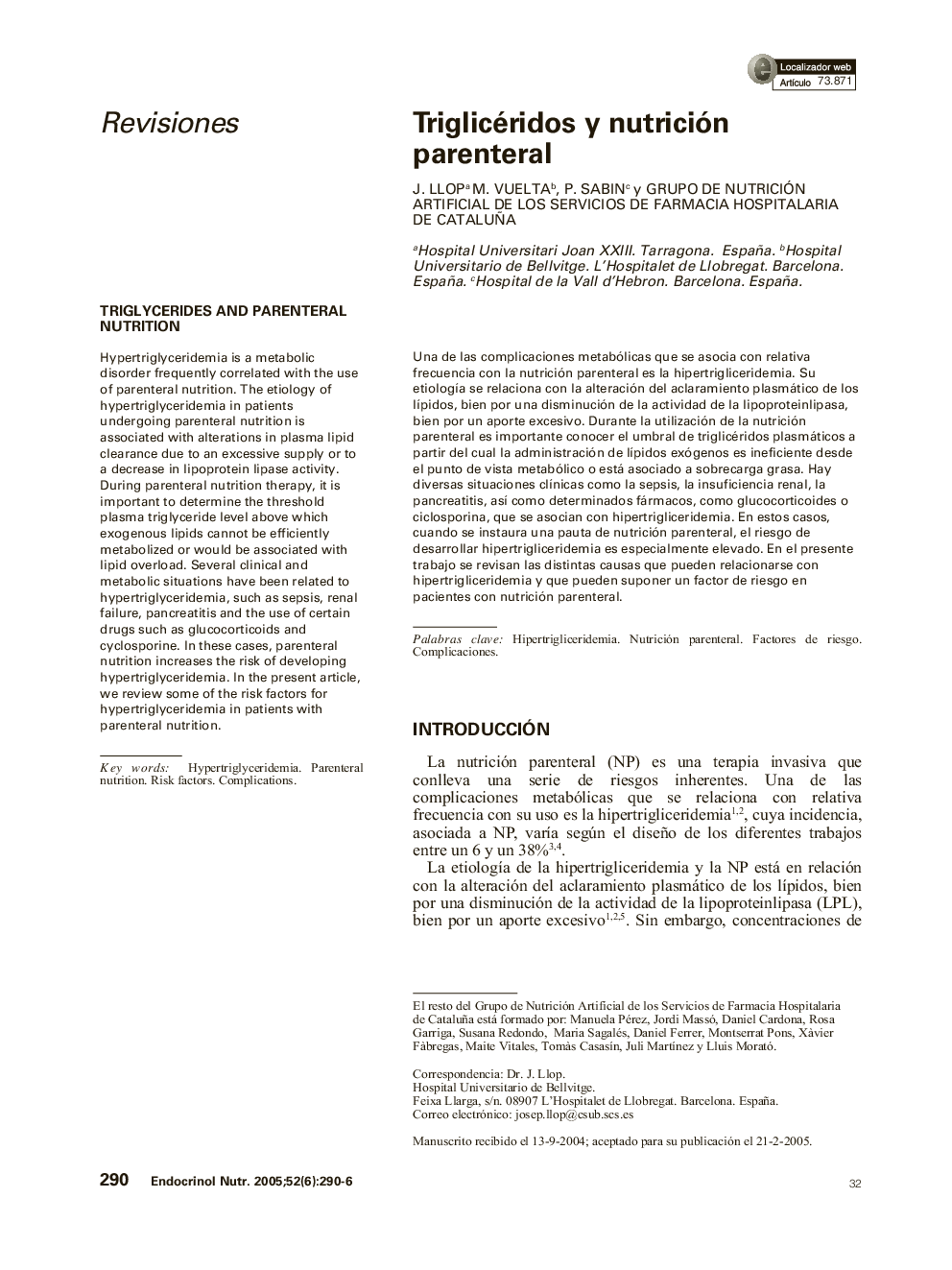| Article ID | Journal | Published Year | Pages | File Type |
|---|---|---|---|---|
| 9102235 | Endocrinología y Nutrición | 2005 | 7 Pages |
Abstract
Hypertriglyceridemia is a metabolic disorder frequently correlated with the use of parenteral nutrition. The etiology of hypertriglyceridemia in patients undergoing parenteral nutrition is associated with alterations in plasma lipid clearance due to an excessive supply or to a decrease in lipoprotein lipase activity. During parenteral nutrition therapy, it is important to determine the threshold plasma triglyceride level above which exogenous lipids cannot be efficiently metabolized or would be associated with lipid overload. Several clinical and metabolic situations have been related to hypertriglyceridemia, such as sepsis, renal failure, pancreatitis and the use of certain drugs such as glucocorticoids and cyclosporine. In these cases, parenteral nutrition increases the risk of developing hypertriglyceridemia. In the present article, we review some of the risk factors for hypertriglyceridemia in patients with parenteral nutrition.
Keywords
Related Topics
Life Sciences
Biochemistry, Genetics and Molecular Biology
Clinical Biochemistry
Authors
J. Llop, M. Vuelta, P. Sabin, Grupo de nutrición artificial de los servicios de farmacia hospitalaria de cataluña Grupo de nutrición artificial de los servicios de farmacia hospitalaria de cataluña,
